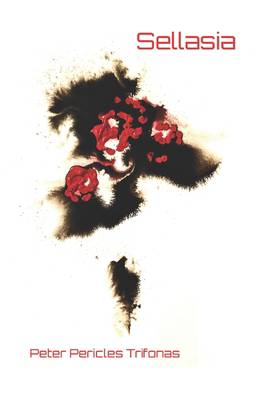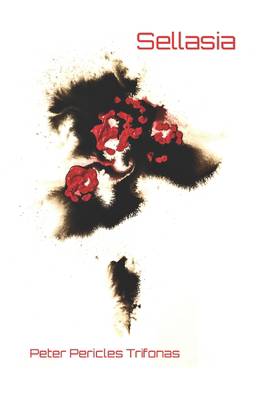
- Retrait gratuit dans votre magasin Club
- 7.000.000 titres dans notre catalogue
- Payer en toute sécurité
- Toujours un magasin près de chez vous
- Retrait gratuit dans votre magasin Club
- 7.000.0000 titres dans notre catalogue
- Payer en toute sécurité
- Toujours un magasin près de chez vous
Description
From the Prologue My mother Martha Karanicolas emigrated to Canada in 1954 from Sellasia after the Greek civil war to join her sister, Aphroditi, and her brother, Lefteri, in Toronto. It was a chance to make a new life. In 1958, she paid the way for Panagiotis Trifonas to come from the village and be her husband. A year later in, 1959 they married.
I had been going to Sellasia since I was a young boy of 4 years. The little I knew of the village was told to me by my grandmothers, Ekaterini and Georgitsa, and grandfathers, Pericles and Yiorgos, during the summers I spent there, quite oblivious to the history of a place tracing back before the Battle of Sellasia in 222 BC.
During one of these trips in 1972, I discovered a diary among a stash of books that had belonged to my father. The pages were yellowed by the passing of time, and it was held together by a red elastic ready to snap. I did not know the language well enough to read the diary. It disappeared until 2012 when I found it again in Canada after my father died.
As I read, the history of Sellasia during Nazi occupation of the village in 1943-1944 came alive through the eyes of a 14-year-old boy. The diary was an ancestral genealogy of both sides of my family, Trifonas and Karanicolas, told through a war-time story of human perseverance, unimaginable courage, and endless hope. To understand the lived experience of one's father, mother, aunt, or uncle as a child is unimaginable. And yet, the diary was a time capsule that allowed me to follow the physical and psychological journey into a life that had begun before I was born and was also a part of who I was, would be and am now.
For a long time, I did not know what to do with the manuscript, so it sat in the drawer of an old dresser until I felt the need to revisit the story my father told, for some reason or other. Usually inspired by the almost daily conversations I had with my mother about events in Sellasia during the war that came up while she watched documentaries on Greek television about the Nazi occupation of her homeland. She was the first to suggest that I publish the diary to reveal the truth about the hardships the village faced at the hands of the Germans. But also, to tell the story of the people of Sellasia who overcame the horrors of war with bravery and to live on with dignity and love.
The events in the original manuscript of the diary remain largely unchanged and true in my version, despite frequent clumsy writing and some poetic license. Peter Pericles Trifonas
December 24, 2021
I had been going to Sellasia since I was a young boy of 4 years. The little I knew of the village was told to me by my grandmothers, Ekaterini and Georgitsa, and grandfathers, Pericles and Yiorgos, during the summers I spent there, quite oblivious to the history of a place tracing back before the Battle of Sellasia in 222 BC.
During one of these trips in 1972, I discovered a diary among a stash of books that had belonged to my father. The pages were yellowed by the passing of time, and it was held together by a red elastic ready to snap. I did not know the language well enough to read the diary. It disappeared until 2012 when I found it again in Canada after my father died.
As I read, the history of Sellasia during Nazi occupation of the village in 1943-1944 came alive through the eyes of a 14-year-old boy. The diary was an ancestral genealogy of both sides of my family, Trifonas and Karanicolas, told through a war-time story of human perseverance, unimaginable courage, and endless hope. To understand the lived experience of one's father, mother, aunt, or uncle as a child is unimaginable. And yet, the diary was a time capsule that allowed me to follow the physical and psychological journey into a life that had begun before I was born and was also a part of who I was, would be and am now.
For a long time, I did not know what to do with the manuscript, so it sat in the drawer of an old dresser until I felt the need to revisit the story my father told, for some reason or other. Usually inspired by the almost daily conversations I had with my mother about events in Sellasia during the war that came up while she watched documentaries on Greek television about the Nazi occupation of her homeland. She was the first to suggest that I publish the diary to reveal the truth about the hardships the village faced at the hands of the Germans. But also, to tell the story of the people of Sellasia who overcame the horrors of war with bravery and to live on with dignity and love.
The events in the original manuscript of the diary remain largely unchanged and true in my version, despite frequent clumsy writing and some poetic license. Peter Pericles Trifonas
December 24, 2021
Spécifications
Parties prenantes
- Auteur(s) :
- Editeur:
Contenu
- Nombre de pages :
- 192
- Langue:
- Anglais
Caractéristiques
- EAN:
- 9780993895357
- Date de parution :
- 30-03-22
- Format:
- Livre broché
- Format numérique:
- Trade paperback (VS)
- Dimensions :
- 152 mm x 229 mm
- Poids :
- 263 g

Les avis
Nous publions uniquement les avis qui respectent les conditions requises. Consultez nos conditions pour les avis.






